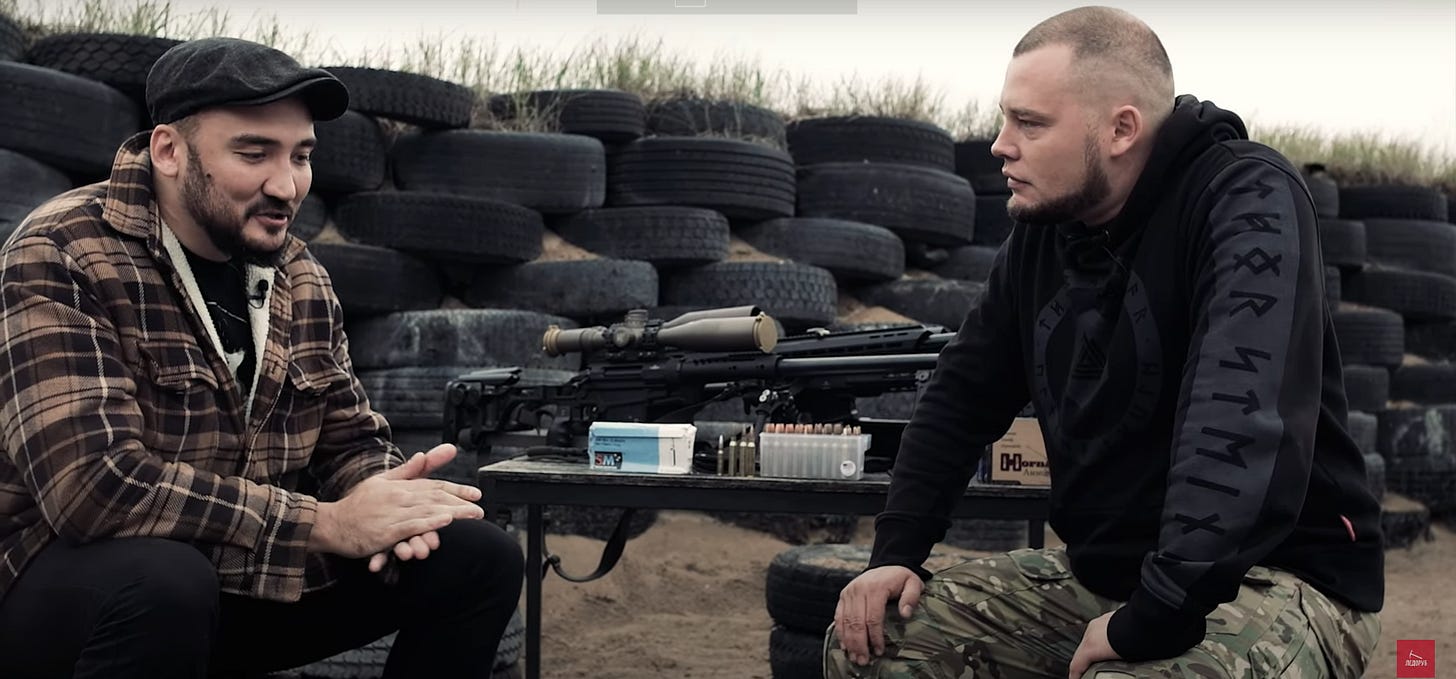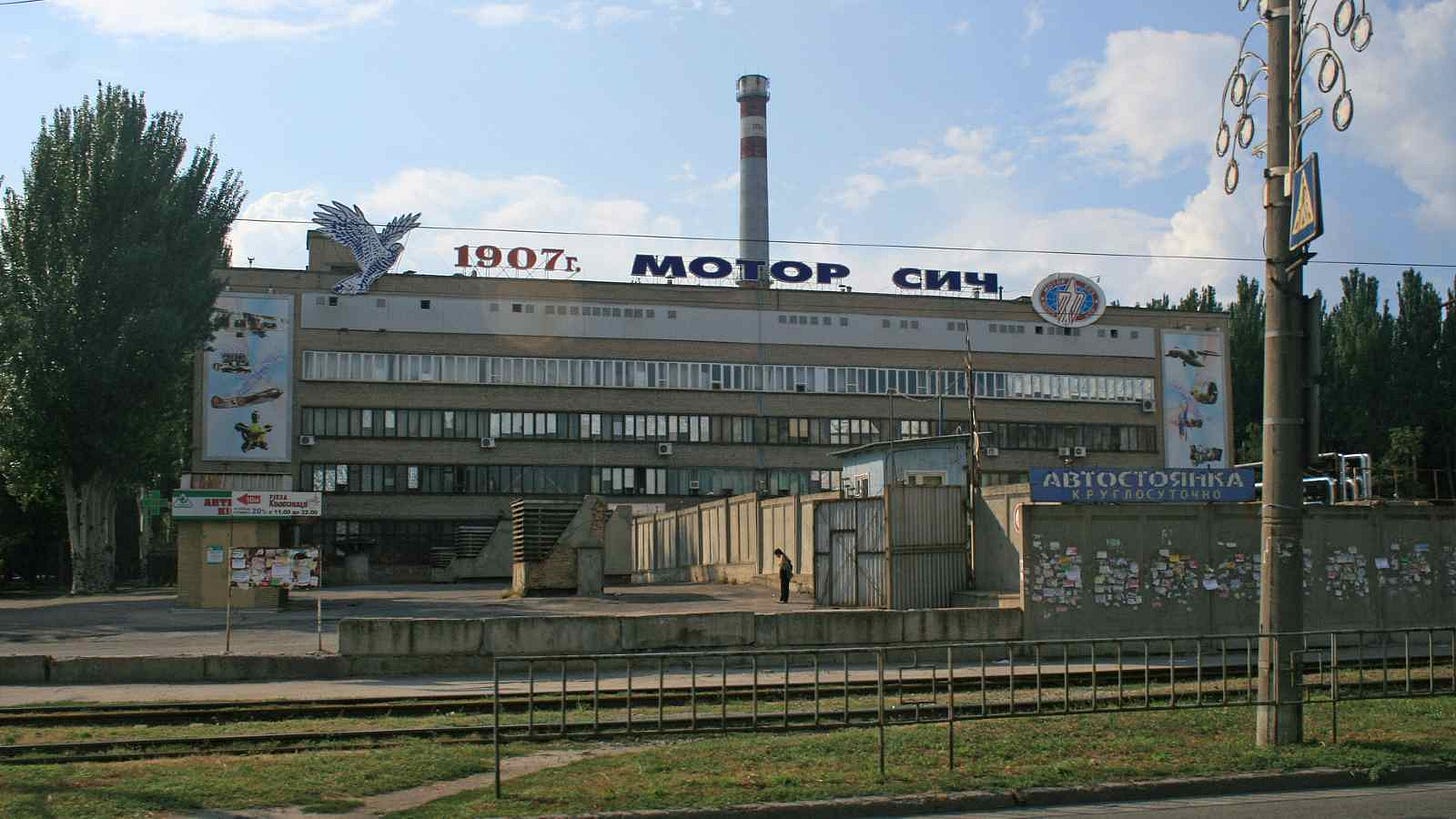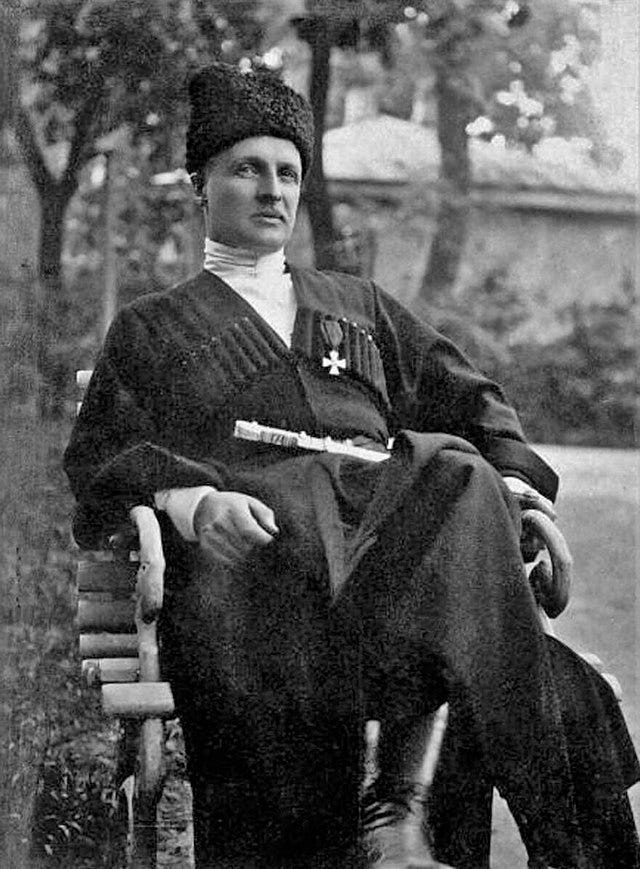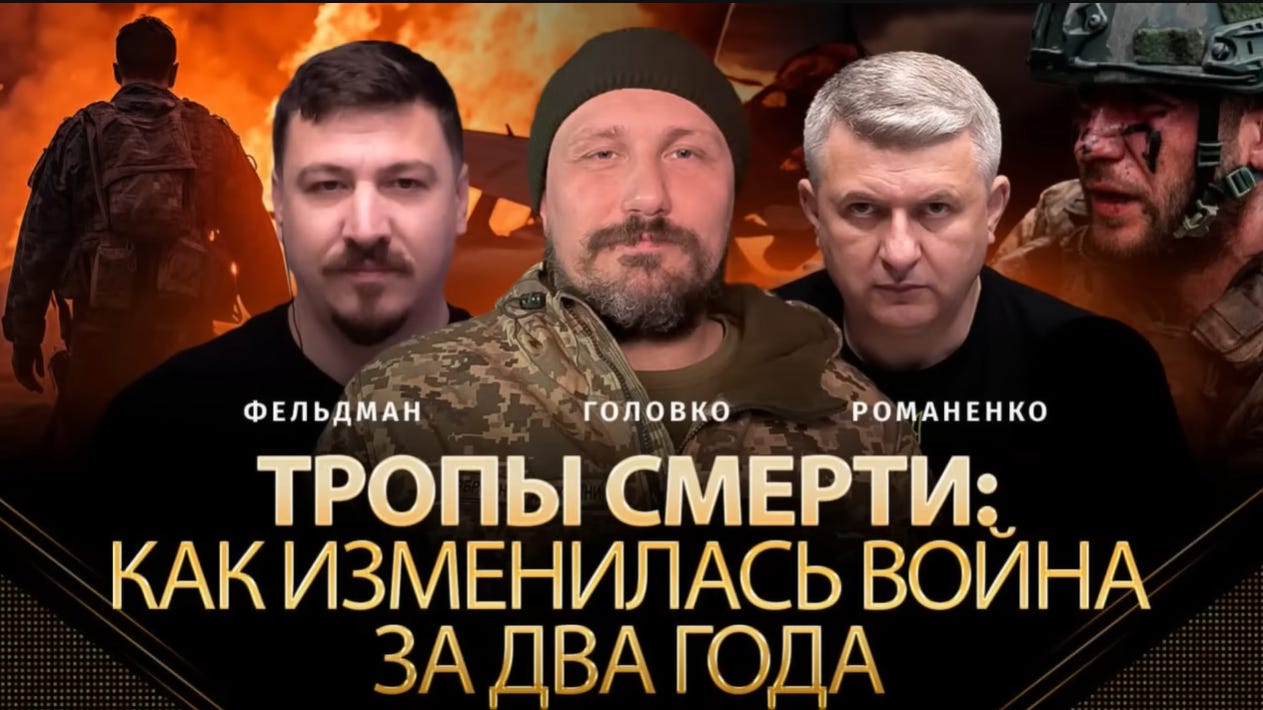Russian vs Ukrainian military patriots, Ukraine needs cunning Romanian diplomacy... internet digest
If you like my content, consider donating to my patreon here.
I’ve decided to put out more on this substack. Less formal, more reactions to the events of the present. Before 2022, I was very much focused on the events of the present. Despite the bleakness of the situation, I did still have some hope that Ukraine could balance the proverbial tightrope, make some moves towards implementing Minsk, and generally simply calm down. A visit to Georgia in January 2022 even reinforced that optimism, seeing how that country had, by and large, ‘calmed down’, after Saakashvili’s euroatlantic nationalist militarism of the 2000s. February 2022, of course, replaced political maneuvering with that of tanks. Not considering myself a ‘military expert’, I have instead spent my energies analyzing the longer-term backdrop to current events.
Nevertheless, of course, politics was never really interrupted by war. And as the years have gone by, the war has lost its mystic power of overcoming any attempt at frank discussions of more mundane topics. Ukraine’s public sphere is, to at least some extent, returning to its usual Hobbesian state of all against all. Zaluzhny and Zelensky have openly stated their mutual competition. Western media, until recently so positive towards Ukraine, has fanned the flames. In other words, there is plenty of talk about.

Listening to interviews with Ukrainian and Russian soldiers has a somewhat therapeutic effect for me. Work and personal issues get put into perspective by listening to stories about trenchfoot, the constant fear of drones, and the horrors of military hospitals.
Regarding the Russians, I occasionally listen to interviews from ‘Ice breaker’, a channel associated with Wagnerites and Russian nationalists like Evgeny Norin. Their recent long discussion with soldiers at the front was interesting.

One thing I notice, when comparing their streams with those of Ukrainian military youtube channels like ‘From Soul to Soul’ (who interviews Azov and other rightwing veterans), is the relative lack of preoccupation with swearing and discussing the gruesome details of death and killing. Somewhat cosmetic, but in any case, it is somewhat interesting trying to figure out the difference between various nationalisms.
Otherwise, the main moral from the frontline interviews was that despite a variety of ideologies at the front (skinhead ethnonationalists, communists, monarchists, pagan nationalists were mentioned), everyone is united by Russian patriotism and a shared love of fighting.

But that didn’t come without an extended meditation by the main fighter interviewed about how useless frontline bonding is to the political problems of peacetime life.
As for the enemy, Ukrainians are ‘Russian zombies’, but despite being controlled and made insane by foreign forces, they are still Russian zombies, and are hence quite proficient at fighting, particularly on the defensive (their ability to dig fortified trenches is particularly praised).
When it comes to Ukrainians, I found Yury Romanenko’s recent long discussion with Ukrainian military medic Fedor Golovko quite interesting.
Golovko, a Russian-speaking (far from a rarity among soldiers) military doctor who has been recovering from a concussion received on the Bakhmut direction, has served in various sections of the front. He discusses the constantly increasing danger Ukrainian soldiers find themselves in due to the constantly increasing drone capacities of the Russian army. Another topic is the dramatic difference in armament supplies, allowing the Russians to hit all suspected Ukrainian positions with a stream of grenade launchers and guided bombs, while the Ukrainians are forced to carefully ration their weapons.
On that topic, Romanenko and his guests often ask the question of why Ukraine hadn’t spent more effort preserving and expanding its soviet military industry in the years before 2022. A somewhat funny question – Ukraine has spent the post-2014 period (before as well, though slower) ‘liberalizing/rationalizing’ – destroying – its military industry in the name of the struggle against corrupt state-owned enterprises, and in the fight against trade with Russia.
Much of Ukraine’s most advanced military industry, such as the helicopter and flight engines of the gargantuan ‘Motor Sich’ factory mainly supplied the Russian market, and were hence gutted after 2014. The director of Motor Sich, the legendary Vyacheslav Boguslaev, was arrested by the Ukrainian SBU (secret services) in 2022 for his pro-Russian sympathies. Asking the question of ‘why didn’t Ukraine’s government invest in military industry’ without questioning the entire post-2014 liberalizing consensus is somewhat redundant.

More on Romanenko. As far as Ukrainian political experts go, he isn’t too bad. Not hard, when the competition is figures like ‘media-expert and political consultant’ Oleksiy Kovzhun (a former advisor to Yeltsin in Russia and Tymoshenko in Ukraine, by the way), who spends his interviews gravely informing the audience that Elon Musk’s ‘anti-Ukrainian’ behaviour is caused by his love of marijuana. The impression is even worse, given how pompously they present themselves as enlightened ‘national elites’.
Romanenko is also quite a fan of blowing his own trumpet as a member of Ukraine’s intellectual elite. In any case, he is a Russian-speaking political analyst based in Kiev, who has written articles for decades. I used to see him introduced by others as a ‘pro-Zelensky’ analyst, but over the past year or so he has grown more and more critical of Zelensky.
In his interviews with soldiers, he and the soldiers generally end up talking about how Zelensky’s main slogan of ‘1991 borders or nothing’ is impossible, or at the very least could only come at the cost of millions of Ukrainian lives. Many of Alexey Arestovich’s most scandalous statements are made on Romanenko’s streams. Romanenko in general bills himself as ‘saying the truth about the war that the government TV won’t tell’. In a patriotic way, of course, by interviewing Ukrainian soldiers and such, ‘pursuing Ukraine’s interests’. Needless to say, he considers himself an opponent of Russia, and claims he wishes to see Ukraine within the euroatlantic ‘Western world’. One upside of Romanenko is that he often invites Ilya Kusa to his streams, who is perhaps the only surviving Ukrainian public expert who is interested in the non-western world.
There are also some funny crossovers between Russian and Ukrainian military youtubers. I mentioned earlier the ‘Russian zombie’ thesis of the soldiers interviewed by Ice Breaker, according to which Ukrainians, while zombified by the west, still retain the Russian ability to fight well. I was reminded of Arestovich’s claim back in 2022, that the West should be more worried about the possibility of Russia winning, because if Ukraine goes back to Russia’s side, Europe stands no chance in the upcoming world war.
Anyway, Romanenko can be quite tedious when he launches into monologues about his genius ‘victory formula’ that is alone capable of saving Ukraine from its current troubles. He is convinced that ‘cunning diplomacy’ could make Ukraine an analogue to Azerbaijan, which, according to him, made itself necessary to regional and global powers, hence, was able to pursue its territorial goals vis a vis Armenia. Like other Russian-speaking political analysts such as Alexey Kusch (whose work I have also commented on and translated on my substack), he is a fan of ‘wise statesmen’ like Park Chung-Hee, and his main shtick is criticizing Poroshenko-style ‘army, language faith’ nationalists of abandoning ‘Israeli economic protectionism and diplomatic common sense’ in favor of hysterical cultural obsessions.
Romanenko’s big war plan is for Ukraine to shift fully to the defensive and thereby bleed out the Russians in their offensive attacks. ‘A Ukrainian Surovikin line’, as he says.
One of Romanenko’s favorite literary references in criticizing the Poroshenkites is Konstantin Paustovsky, a truly great Soviet writer. Coincidentally, I was told to read Paustovsky by an anti-maidan journalist/activist in Odessa, some years before 2022, who said he reread Paustovsky’s books every year since 2014 ‘because Paustovsky best understands civil war’. Indeed, Paustovsky, who lived almost his whole life in Ukraine, left behind a remarkable account of civil war and revolution in Ukraine from 1917-1920. The historical parallels are striking while reading them.
Romanenko is particularly fond of referring to Paustovsky’s ‘the Violet Ray’. I will try translate it soon. In it, Paustovsky describes his experiences in Kiev as it was under the control of Simon Petliura - ‘So began in Kiev the short light-headed government of the Directory’. Riding into Kiev on a magnificent white horse, followed by his ideologically committed (comically so) ‘Haidamaky’ cavalry, Petliura certainly had quite an image, mixing pro-peasant populism (fairly mild, to peasant dismay and Bolshevik profit) with an anti-communist, pro-entente geopolitical orientation. But despite the striking appearances, and the grandiose proclamations of the Directory, filled with renowned intellectuals such as Volodymyr Vynnychenko, a stable government or army was not built. The classic joke about the Directory is that it was generally a ‘Directory on wheels’ - its ‘state’ only existed where the carriages carrying Petliura and his (relatively) loyal soldiers were.
Romanenko focuses on this ‘inability to build a state’ as the Directory’s main fault and reason for the Bolshevik victory and contrasts them unfavorably with his favorite figure of the time, Pavlo Skoropadsky. While he does mention Bolshevik 'social populism’ as another reason for their victory, this is of course not his favorite theme, though he does have some interesting things about how Ukrainians in 1917-20, despite being far more uniformly Ukrainian speaking and less ‘culturally Russian’ than today, still chose the Bolsheviks. He uses this to blame the Poroshenkites of focusing too much on cultural matters and too little on more material issues.
Back to Skoropadsky. Coming from old Cossack nobility that had done very well under the tsars, he led a rightwing military junta propped up by the German Kaiser that replaced Petliura’s pro-entente government. Skoropadsky’s openly pro-kulak (kurkul, as they were called in Ukraine) policies led to constant peasant uprisings under various banners. No matter how much of a wise statesman he might have been, according to Romanenko, his government was quite short-lived.

But what interests me is not so much historical accuracy. What is notable are these archetypes, surviving over a century now. The cultural nationalist, Ukrainian-speaking, showy Petliura-Poroshenkites, versus the Russian-speaking, ‘pragmatist’ Skoropadsky-Romanenkos. Of course, I don’t want to overstate Romanenko’s historical importance in so doing. But Skoropadsky did exist, and his strategy of employing Russian white army officers to build up the army was one that was quite disliked by Petliura, who fought a civil war-within-the-civil war against him (fantastically described in Paustovsky’s novel ‘The beginning of an unknown era’).
Post-2014 Ukraine is one dominated by liberal idealists, for whom any and all costs are justified in the struggle of Democracy against Autocracy. This is why it is somewhat puzzling to see someone like Romanenko or Kusch, who try and inject some pragmatism into this fundamentally anti-pragmatic worldview.
Romanenko’s curious discourse can lead to some real pearls. For instance, he put out a long video several days ago about the Zelensky-Zaluzhny conflict. Towards the end, he started discussing Ukraine’s ‘Finlandization’, which is one of his favorite topics lately. Finlandization means adopting Finland’s position after world war 2 - during which it was defeated by the USSR – geopolitical neutrality, joining no military blocs opposed to the USSR. While this idea is generally associated with ‘Russian narratives’, Romanenko is quite a fan. He argues that Ukraine should not be obsessed with things like the 1991 borders, but should instead fight Russia to a standstill (due to hypothetical extreme Russian losses) on the defensive, with the ultimate goal of acquiring guarantees of safety from the major powers (which, as he himself points out, does not necessarily mean joining NATO).
According to Romanenko, Finlandization was a great success, since Finland was able to enjoy all the economic benefits of trade with the USSR and the Western countries, acting as a ‘bridge between east and west’ (this is not a phrase used by Romanenko, but it was a favourite throughout the 21st century among Ukrainians who were against Ukraine’s joining NATO). In Romanenko’s words, ‘Finland manouevred between the Scylla and Charybdis of NATO and Russia’. By avoiding any needless provocations of Moscow, which Romanenko laments that many Ukrainian nationalists are obsessed with doing, Finland was able to live for peace ever since.
Now, such a seemingly anti-NATO, ‘victim-blaming’ discourse is quite scandalous in Ukraine. During his stream, Romanenko received several reproaches for such a Russian narrative, with the classic criticism that ‘well, Hungary and Romania joined NATO, so why can’t we?’
This is where he comes out with the pearl. Taking the opportunity to show off his knowledge of history, he points to Romania in world war 1, which, despite being occupied by the central European powers and defeated militarily in every way, was still able to receive enormous territorial benefits (hitherto Hungarian Transylvania) at the post-war Trianon peace conference because of Romania’s ‘wise decision to take advantage of the moment and declare war on Germany when it was clear they were losing in the last days of the war’. According to Romanenko, Ukraine should learn from such diplomatic cunning, and think in the long-term, instead of simply acting with the short-term goal of provoking Russia as much as possible.
Romanenko seems to understand such a long-term perspective in the sense that Finland has recently joined NATO and is now able to provoke Russia to its heart’s desire.
Now, I don’t really know just how ‘cunning’ Romania’s King Carol was in World War 1. Was it such a stroke of genius to join the winners in the final days of the war? They pulled the same trick in world war 2 (unlike the Hungarian fascists), and also enjoyed some relative softness from the USSR (compared to Hungary) in return. But how does such a simple decision have any relevance to Ukraine now, which is in a far more hopeless spot? It is not faced with a crumbling Russian army, as Romania was faced with crumbling German armies in the November 1918 or August 1944. And it might also be worth remembering, that Romania was hardly propelled to prosperity by Trianon, and spent the next 20 years stewing in its semi-feudalism (the ‘semi’ might be an exaggeration), only to lose much of its territorial gains in the next world war.
Furthermore, the Finlandization example is also hardly appropriate to Ukraine’s current relations with Russia. Romanenko assures his listeners that Finlandization doesn’t mean abandoning NATO, because Finland has now joined NATO and can be as anti-Russian as it likes. The obvious question that emerges, is why Russia would be willing to refrain from conquering more of Ukraine in return for ‘Finlandization’, if this very Finlandization has now proven to be unreliable in achieving the goal of non-alignment? When visible Ukrainian political advisors and intellectuals like Romanenko openly proclaim that any Finlandization would be merely a ‘cunning’ ruse to cover for NATOfication later?
While I have no clue how much one should judge Russian state policy on the basis of his statements, Dmitry Medvedev is certainly quite openly opposed to the idea of the Finlandization of Ukraine, which is castigated as a ‘Minsk 3’ (the Minsk agreements saw 2 iterations, one in 2014 and one in 2015). All the vocal Russian Z-patriots are also quite loudly opposed to such an idea.
In sum, I fear that Romanenko’s ‘cunning diplomacy’ might be a bit of cheap circus magic. Unfortunately, in current Ukrainian conditions, there is little other he can recommend.






Romania's cunning is less so, but bloody minded self interest.
Romania started the war in 1916, and had a three direction fronts to defend. So ended up loosing the southern part until it stabilized the front, got more training from the French and back up from the Russians. The biggest battles in Europe in WWI in 1917 were in Romania, by which Romanian and Russian forces managed to hold back and push back German/Austrian Hungarian forces on the Carpahians and on Siret River.
But then with the Revolutions, Russians went home and Romania, utterly isolated, sourounded from three directions and with chaos on the forth, capitulated. Nevertheless, at the end of 1917, to stop the Bolshevics taking a hold in Moldova, Romanian Army got in for pacification purposes. ANd the Moldavian National Assembly voted for what was call Bessarabia, to be re-inited with Romania (comprised of historical provinces of Moldova and Wallachia, and the newly incorporated Dobruja, taken from Turks after the independence war of 1877/1878.
And at the end of WWI Romania did again declared war against the Central powers and attacked and occupied Transylvania. Which, after a National Assembly Meeting, voted to unite with Romania (it was a second such union, first accomplished in 1600, briefely). But the Paris Peace Treaty had to accept all theses decissions made by Romanians in Transylvania and Bessarabia, because at the time of peace, Romanian Army was already occupying Budapest, which was in the throws of a Communist Revolution, which scared the hell out of Western Popwers (contagion issues).
In WWII, Romania was forced to attack USSR: firstly, Germany allowed USSR to take Bessarabia in 1939 and thus Romania had ample reasons to join Germany in its attack against the Soviets. However, in 1944, with the collapse of the western front, and knowing that Germany had plans to overthrow Romanian Government the way they did in Hungary with Maritia I plans, Romanians, under the leadership of their King, arested the government and turned the war against Germany, and pushing back the Germans from Romania without Russian support. ANd then Romanian Army fought alongside Russian forces in the liberation of Hungary and Budapest (hell of an urban fight) up to Cechoslovakia in the Tatra Mountains to the end of the war. So nothing that Romanians got was for free, but payed with a lot of blood and sacrifice. And they were not cunning, but realistic and thinking of the self preservation. Which the Ukrainians seem not to be capable of, and never where, this is why their state is a one made by the Russians.
Insane #Russian-dogs R being grilled like `hot dogs` at the Ten (10) mile underground #Severomuysky-tunnel aka the `Северому́йский тонне́ль` that connects North Korean munitions factories back east and north with Chinese factories, and then on westward 4,500 km to #Moscow per #Yew-lee-a at `Ukraine War Brief`, the #UWB-podcast hosted by #Spotify that highlights recent developments in the #Ukraine/#Soviet war over #RazPutin’s illegal annexation of #Ukrainian-territory including the #Crimean-peninsula. C=> https://open.spotify.com/episode/6uNaXcU3QIvCfLNmCygGXY #SlavaUkraini